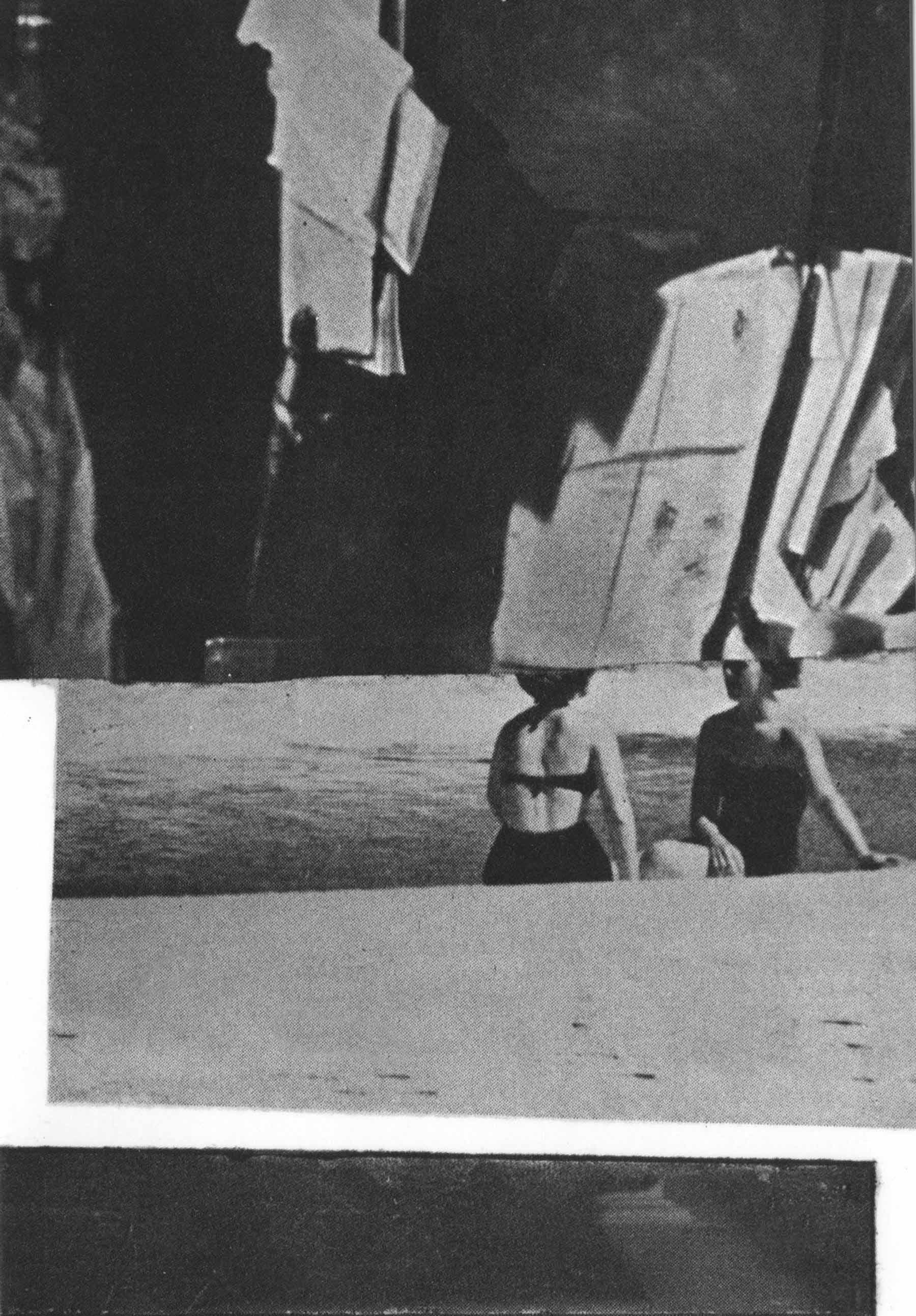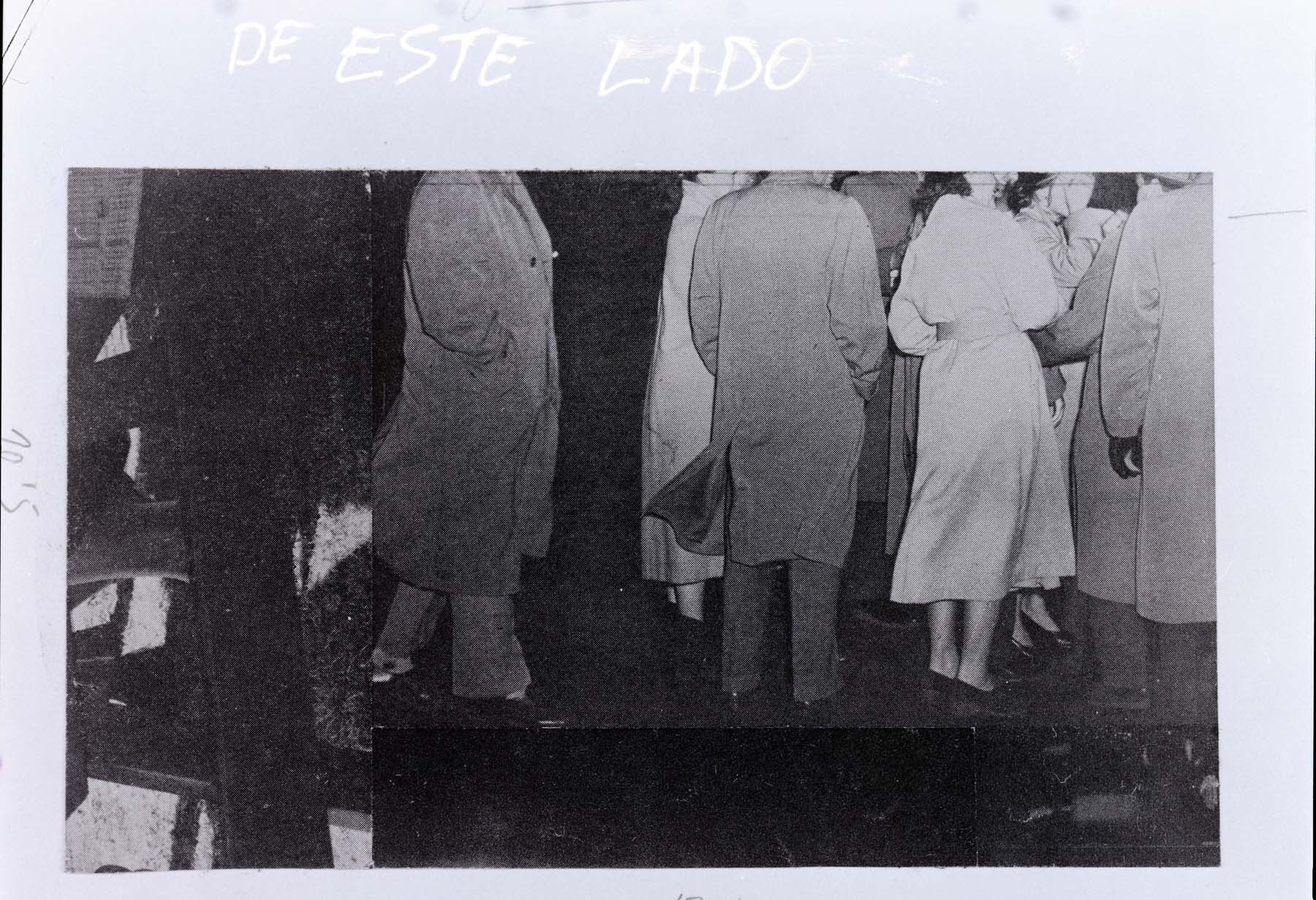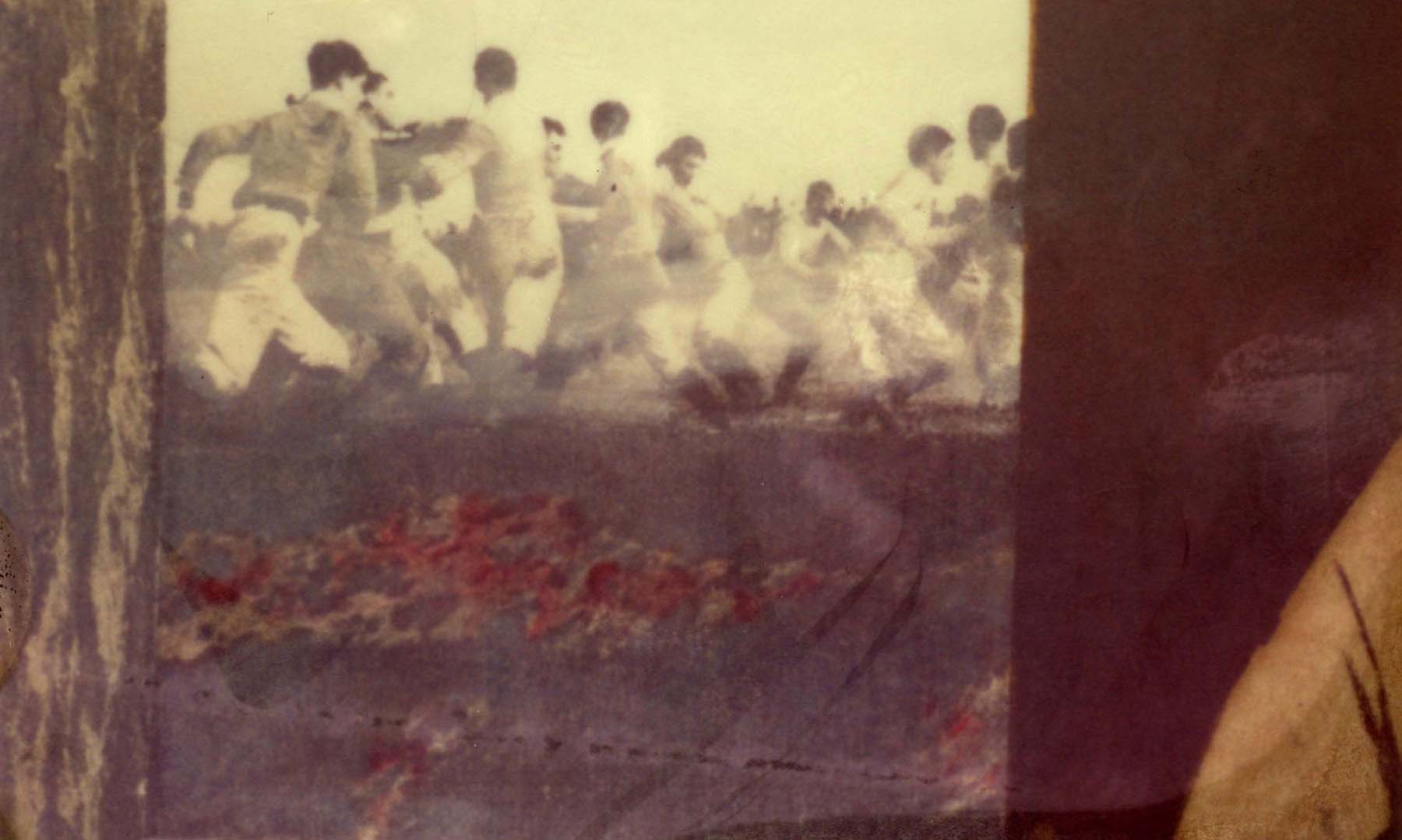
Encendido
Alicia Fingerhut
17/06/81. (Sala 072)
From June 17 to July 4, 1981.
The canvases of this work (oil and photographic composition) express concepts that are always extreme. From the figures and composition of forms one can perceive an ancient and direct vocation to explain a personal world that, otherwise, seems untransmittable.
Alicia Fingerhut’s work achieves, despite the free method, a strange coherence.
Ignition
It is an epic painting. Anti-lyric and anti-rapsodic. Only the action matters. And it is the action that is the dominant theme. The details, the small details that accompany the action are like the knight’s banner or the lady’s veil knotted to her buckler. What matters is the trot of the paladin in battle, in the tournament, in the dangerous game of life. There are no heroes anymore, or they are anonymous. They are relegated to the role of the basso continuo of the comparsa. There are no individualities. They melted into the common chore, into the indiscernible habits of a society without documentation and without a face. We do not see the facts. Nor the events. We see the impossibility of finding a face to look at and a space to take shelter.
The epic conflict is interior, intimate, since in the face of reality -the natural and spiritual environment- man resists subjugation and fights with all the energy of his individuality. And this energy manifests itself in events – in a concrete and natural way – that take place in the midst of collective life, in the center of life in common. These are the conditions in which universal history has always developed: the war is the same, but the place of the contest, the battlefield, has changed. And the human spirit is also the same: striving to emerge from the darkness of its own conscience – of everyone’s – to enter the space of light.
Only luck – and strategy – decide success or failure, death and life. What really happens before us is a sublime and general state in which the acts of men appear as isolated and passing facts without significance and without relief, confused in the total indifference of the passing of history.
Only fever, feverishness, offer this original impulse that launches man against fatality. Fatality superior to himself, which exceeds him in power, in strength and also in resistance. Go out into the square on fire.
Be wary of the image, be wary of the figure. Here the action, the theme, becomes confused in that indifferent continuum from which it emerged; it is the composition, the order of the figures and the desire for re-composition that are the only arbiters, those that generate reflection and feeling, those that confuse and those that alter.
Antoni Marí

